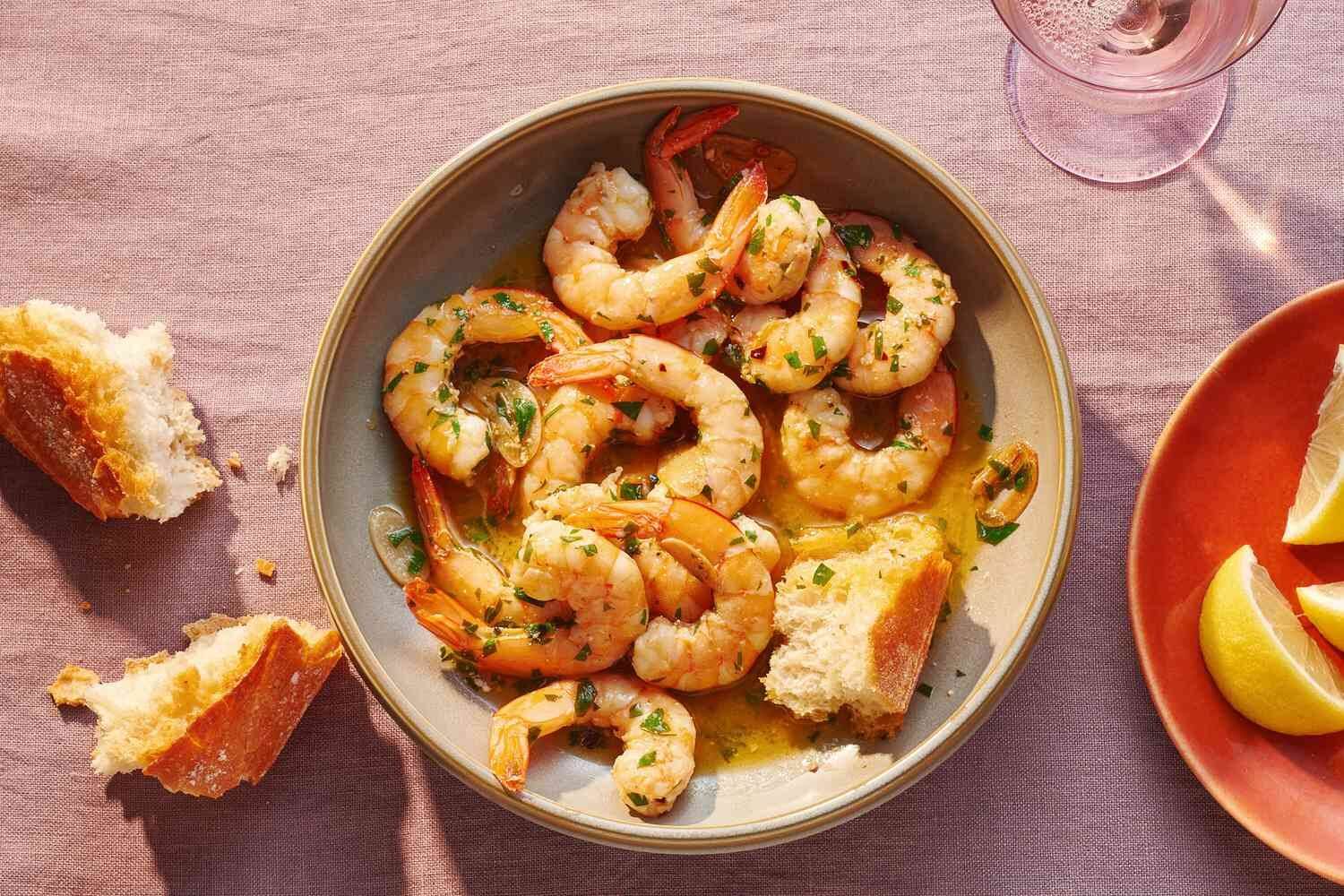
Shrimp, a delicious and versatile seafood, is a favorite among many food enthusiasts worldwide. Whether you enjoy it grilled, sautéed, or in a comforting bowl of shrimp scampi, this delectable crustacean offers a myriad of flavors and textures. But did you know that shrimp also have some fascinating facts associated with them? From their impressive swimming abilities to their remarkable lifespan, there’s so much more to discover about these tiny sea creatures. In this article, we’ve compiled 10 fun and interesting facts about shrimp that will surely intrigue you. So, grab a plate of shrimp cocktail and get ready to dive deep into the world of these remarkable creatures!
Key Takeaways:
- Shrimp are the most popular seafood in the US, with over 2,000 species, high nutritional value, and the ability to change color. They play a vital role in marine ecosystems and have impressive swimming abilities.
- Shrimp have a unique cardiovascular system, keen sense of smell, and engage in elaborate mating rituals. They are scavengers, contributing to marine ecosystem balance, and have a short but rapid lifespan.
Shrimp are the most popular seafood in the United States.
Did you know that Americans consume more shrimp than any other type of seafood? With its versatile flavor and wide availability, it’s no wonder why shrimp is a favorite choice among seafood lovers.
There are over 2,000 different species of shrimp.
Shrimp come in various shapes, sizes, and colors. From the tiny caridean shrimp to the larger species like tiger shrimp, there is a wide range of options to choose from when it comes to enjoying these crustaceans.
Shrimp have a high nutritional value.
Not only are shrimp delicious, but they are also packed with important nutrients. They are an excellent source of lean protein, omega-3 fatty acids, and antioxidants, making them a healthy addition to any diet.
Shrimp can change color.
Shrimp have a unique ability to change their color depending on their surroundings. This camouflage technique helps them blend in with their environment and avoid predators.
Shrimp have a lifespan of 1-2 years.
Despite their short lifespan, shrimp have a rapid growth rate. They can reach maturity in just a few months, allowing them to reproduce and sustain their populations relatively quickly.
Shrimp have an impressive cardiovascular system.
Unlike humans, shrimp have an open circulatory system. Their heart is located in their head, and their blood is pumped throughout their body cavity, providing oxygen to their organs.
Shrimp have incredible swimming abilities.
Shrimp are known for their incredible swimming skills. They use their powerful abdominal muscles to propel themselves through the water, demonstrating impressive agility and speed.
Shrimp are scavengers.
Shrimp are detritivores, meaning they feed on decaying organic matter and algae. They play an essential role in maintaining the balance of marine ecosystems by cleaning up debris and contributing to the decomposition process.
Shrimp have a keen sense of smell.
Shrimp have specialized scent receptors on their antennae, allowing them to detect even the faintest smells in the water. This ability helps them locate food and avoid potential dangers.
Shrimp have unique mating rituals.
When it comes to reproduction, shrimp engage in elaborate courtship behaviors. Some species perform intricate dances, while others release pheromones to attract their mates. These rituals vary among different species.
Conclusion
Shrimp is not only a delicious seafood delicacy but also a fascinating creature with many interesting facts. From their incredible diversity to their important role in ecosystems, shrimp never cease to amaze. Whether you enjoy them grilled, fried, or in a scrumptious shrimp cocktail, knowing these fun facts can help you appreciate these crustaceans even more. So, next time you savor the flavor of shrimp, remember the incredible journey it took to reach your plate.
FAQs
Q: How many different species of shrimp are there?
A: There are over 2,000 known species of shrimp worldwide, ranging in size from small to jumbo.
Q: Are all shrimp edible?
A: While not every shrimp is consumed by humans, many species are edible and enjoyed as a popular seafood choice worldwide.
Q: How long do shrimp live?
A: The lifespan of shrimp varies depending on the species, but most typically live for one to two years.
Q: What is the nutritional value of shrimp?
A: Shrimp is a low-calorie protein source that is high in vitamins, minerals, and omega-3 fatty acids.
Q: Why do shrimp turn pink when cooked?
A: Shrimp contain a pigment called astaxanthin, which is initially hidden by other pigments. When heat is applied during cooking, astaxanthin is released, giving the shrimp their signature pink color.
Q: Are shrimp a sustainable seafood choice?
A: Sustainable shrimp farming practices and responsible fishing methods have made it possible to enjoy shrimp while minimizing the impact on the environment.
Q: Can shrimp swim?
A: Yes, shrimp are excellent swimmers and use their muscular tails to propel themselves through the water.
Q: Are shrimp scavengers?
A: Shrimp are known to be scavengers, feeding on dead plant and animal matter as well as small organisms in their natural habitats.
Q: Do all shrimp have a hard exoskeleton?
A: Yes, like all crustaceans, shrimp have a hard outer shell called an exoskeleton that helps protect their bodies.
Q: Are shrimp affected by global warming?
A: Yes, rising sea temperatures due to global warming can impact shrimp populations and their habitats, potentially affecting their abundance in certain regions.
Was this page helpful?
Our commitment to delivering trustworthy and engaging content is at the heart of what we do. Each fact on our site is contributed by real users like you, bringing a wealth of diverse insights and information. To ensure the highest standards of accuracy and reliability, our dedicated editors meticulously review each submission. This process guarantees that the facts we share are not only fascinating but also credible. Trust in our commitment to quality and authenticity as you explore and learn with us.
